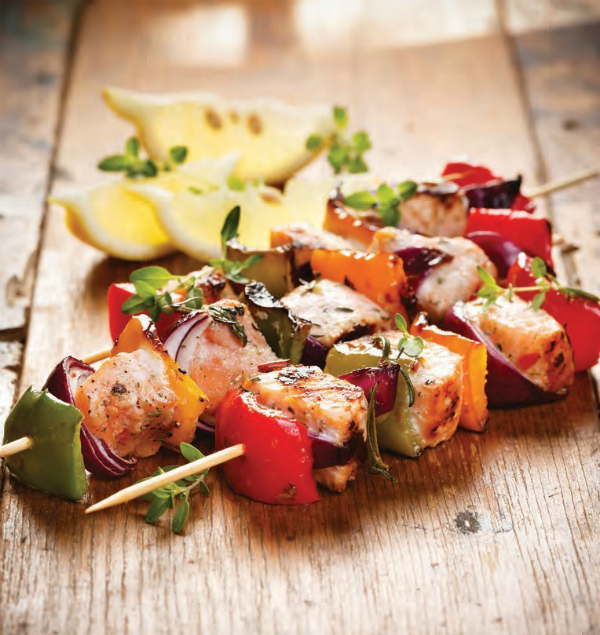What you grill is more important than how you grill it, say experts at the American Institute for Cancer Research (AICR), a non-profit research and education organization specializing in the connection between lifestyle habits and cancer risk. As the grilling season kicks off, AICR issues its annual advice on staying healthy and cancer-protective when cooking out.
THE GRILLING RESEARCH
There is no clear research showing that grilling links to cancer risk. But cooking meats at high temperatures, such as grilling, can lead to two main types of potential carcinogens. Polycyclic aromatic hydrocarbons (PAHs), found in smoke, can adhere to the meat on an open fire. Heterocyclic amines (HCAs) form in meat when the meat proteins react to the intense heat of the grill.
Laboratory experiments have shown that HCAs and PAHs can cause changes in DNA that may increase the risk of cancer.
Cooking meat at a high temperature – like grilling – creates substances that have the potential to cause changes in DNA that may lead to cancer,” says Alice Bender MS, RDN, Head of Nutrition Programs at AICR.
“This is interesting research, yet what matters the most is what you cook, not how you cook it,” Bender said.
CHOOSE VEGGIES OVER HOT DOGS
Research has become clear that diets high in red meat bring an increased risk of colorectal cancer. Even small amounts of processed meats, eaten regularly, increase the risk for both colorectal and stomach cancers.
Based on this evidence, AICR recommends limiting red meat to no more than18 ounces of cooked meat per week and avoiding hot dogs and other processed meats (bacon, sausages, etc.).
“Grilled vegetables and fruits don’t form HCAs – and they’re delicious – so you have another good reason to grill more plant foods, cut the hot dogs and limit the size of your burger,” said Bender.
THREE GRILLING GUIDELINES
While there isn’t enough evidence that HCAs and PAHs increase risk for cancer, there are simple precautions backyard chefs can take. Here are three basic grilling guidelines from AICR:
Shorten Grilling Time, Precook or Cut It Up: If you are grilling larger cuts, you can reduce the time your meat is exposed to the flames by partially cooking it in a microwave, oven or stove first. Immediately place the partially cooked meat on the preheated grill to keep your meat safe from bacteria and other food pathogens. You can also cut your meat into smaller portions before grilling.
Trim the Fat: Trimming the fat off your meat can reduce flare-ups and charring. Cook your meat in the center of the grill moving coals to the outside, and make sure to flip frequently.
Grill Plants: Grilled vegetables and fruits produce no HCAs, and diets high in plant foods are associated with lower cancer risk.
Find evidence-based tools and information for lowering cancer risk, including AICR’s Recommendation for Cancer Prevention, at www.aicr.org.

